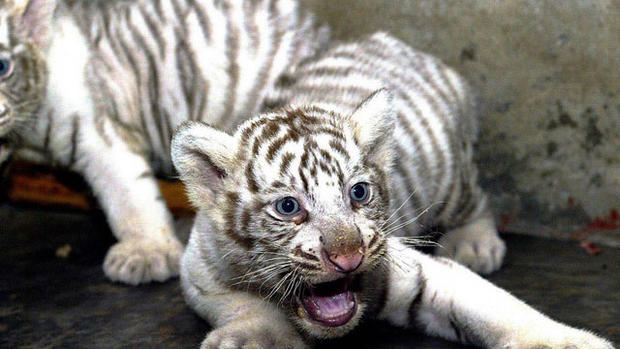Adorable: Rare white tiger cubs born in Japan
White tigers seem almost mythical in appearance, with their snow white fur and often larger statures than their fellow felines. They are also very rare; it is believed that they are only 100 to 200 in the wild.
Four healthy baby white tigers were added to the population on March 16 to the Tobu Zoo in Saitama, Japan. These little ones are the first white tigers born at this Zoo, which is just northwest of Tokyo. There are just around 30 white tigers living in captivity in Japan.
The cub's parents are five-year-old Rocky and seven-year-old Carla. While their mother is doting on them, the cubs will be kept separately from their dad until they get a little older to keep them safe until the weaning period is over.
The babies will be kept with their mother until the beginning of May, when they will be introduced to the public. The zoo is having a contest to find names for the babies, and will have a public naming ceremony at the end of May.
There is actually a lot of debate over breeding white tigers within the zoological community, and beliefs differ from person to person. The reason is because white tigers are not considered a separate species in some circles, so researchers consider the cats to be impacted by a genetic mutation. They are often inbred over and over again to allow the babies to have this mutation.
The breeding causing these cats to have an extremely rare recessive gene that is only found in Bengal tigers, and has yet to be found in Siberian species. This gene is what causes the tigers to be white. With these mutations also come other problems similar to any species that inbreeds, which make it harder for these cats to survive.
White tigers often have other set backs including spinal deformities, kidney problems and club feet, which would make it difficult for them to survive in the wild on their own. The biggest problem is that the gene that causes these tigers to be white also causes their optic nerve to be connected to the wrong side of their brain. This means that all of these animals are cross eyed, even if they don't look that way physically.
